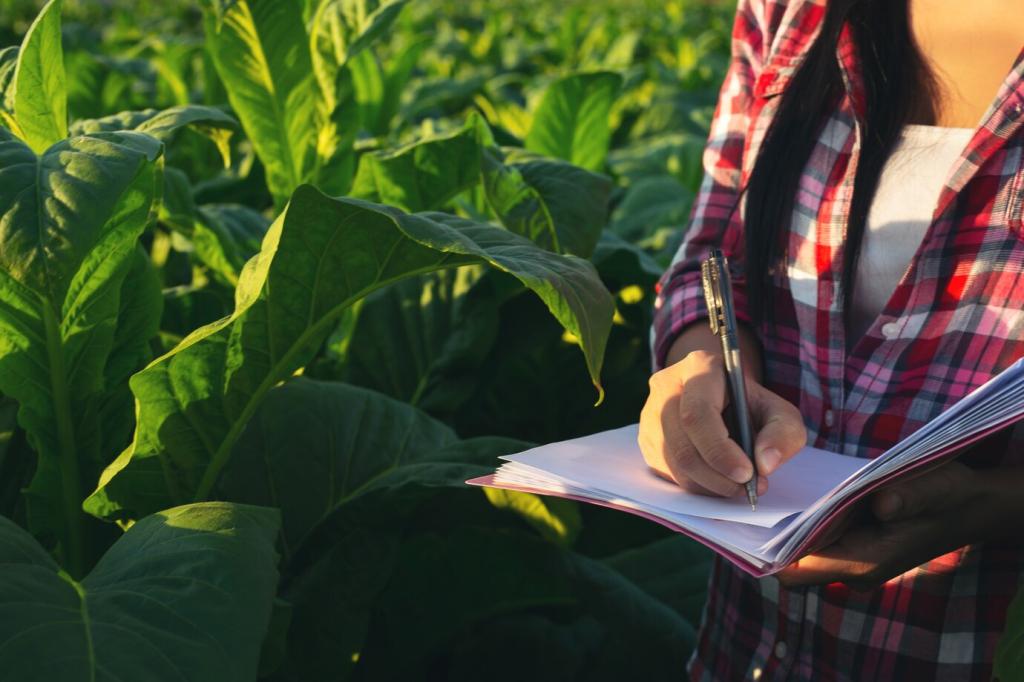Sustainable Urban Farming: Trends and Predictions
Sustainable urban farming is reshaping the landscape of modern cities by merging agriculture with innovative environmental practices. As urban populations continue to rise, the demand for fresh produce, ecological stewardship, and food security in metropolitan areas has never been greater. This web page delves into the most current trends in sustainable urban farming and provides expert predictions that highlight both immediate impacts and the future trajectory of urban agriculture. Discover how cities worldwide are transforming rooftops, vacant lots, and community spaces into thriving centers of sustainable food production while addressing climate change, resource scarcity, and societal needs.
Precision Agriculture in the Urban Context
Precision agriculture has made a significant leap from rural to urban environments, leveraging remotely monitored sensors, data analytics, and automated irrigation systems. Urban farmers can now track soil conditions, humidity, light exposure, and nutrient levels with unprecedented accuracy, enabling precise interventions that maximize growth and minimize waste. This data-driven approach not only leads to higher crop yields but also reduces resource consumption by tailoring every action to the specific needs of plants. As investment in smart urban agriculture tools continues to rise, precision agriculture is becoming an essential component in the toolkit of city-based food producers.
Vertical Farming Technology Advancements
Vertical farming represents a game-changing synthesis of agricultural engineering and urban design. Utilizing stacked layers and controlled indoor environments, these farms can produce substantial quantities of fruits and vegetables within limited city spaces. Innovations in hydroponics, aeroponics, and LED lighting have made vertical farming increasingly viable and cost-effective, allowing urban centers to grow food year-round regardless of outdoor weather conditions. This not only increases local food availability but also lowers transportation emissions, making vertical farms a key trend in sustainable urban agriculture’s future landscape.
Integration of Artificial Intelligence
Artificial intelligence is rapidly finding its place within urban farming operations. AI-driven platforms can analyze environmental factors, predict pest outbreaks, optimize planting schedules, and automate complex tasks like harvesting or nutrient dosing. These intelligent systems reduce labor demands, tamp down on resource waste, and increase consistency in crop production. As machine learning applications continue to evolve, city farms adopting AI stand to become more resilient and productive, setting new standards for sustainability in urban agriculture.
Social and Community Dimensions
Community-Driven Urban Agriculture Projects
Community gardens and cooperatively managed urban farms have become pillars of city living, especially in densely populated areas with limited green space. These projects serve not only as sources of fresh, locally produced food but also as gathering spaces that promote social interaction, collaboration, and inclusivity. Engaging residents in the cultivation process encourages a sense of ownership and responsibility toward their environment. Furthermore, these grassroots efforts can act as catalysts for broader urban renewal, beautifying neighborhoods while addressing urban food insecurity.
Urban Farming as a Tool for Food Justice
Many urban farming initiatives actively address systemic issues related to food deserts and nutritional inequality. By situating farms and gardens in underserved communities, these projects bring fresh produce directly to those who need it most, reducing reliance on long-distance supply chains and processed foods. The empowerment of local producers and consumers enhances food sovereignty, shifting power back to communities that have historically lacked consistent access to healthy food options. In this sense, sustainable urban agriculture emerges not just as a green solution, but as a vital endeavor for food justice and equity.
Educational Initiatives and Urban Farming
Urban farms are increasingly functioning as outdoor classrooms. By partnering with schools, universities, and community organizations, these green spaces provide hands-on learning opportunities for people of all ages. Courses and workshops on subjects like horticulture, composting, nutrition, and environmental stewardship help cultivate knowledge and skills that extend far beyond farming itself. This educational emphasis ensures that sustainable urban agriculture becomes interwoven into the fabric of urban culture and society, fostering the next generation of environmentally conscious citizens and innovators.

Previous slide
Next slide
